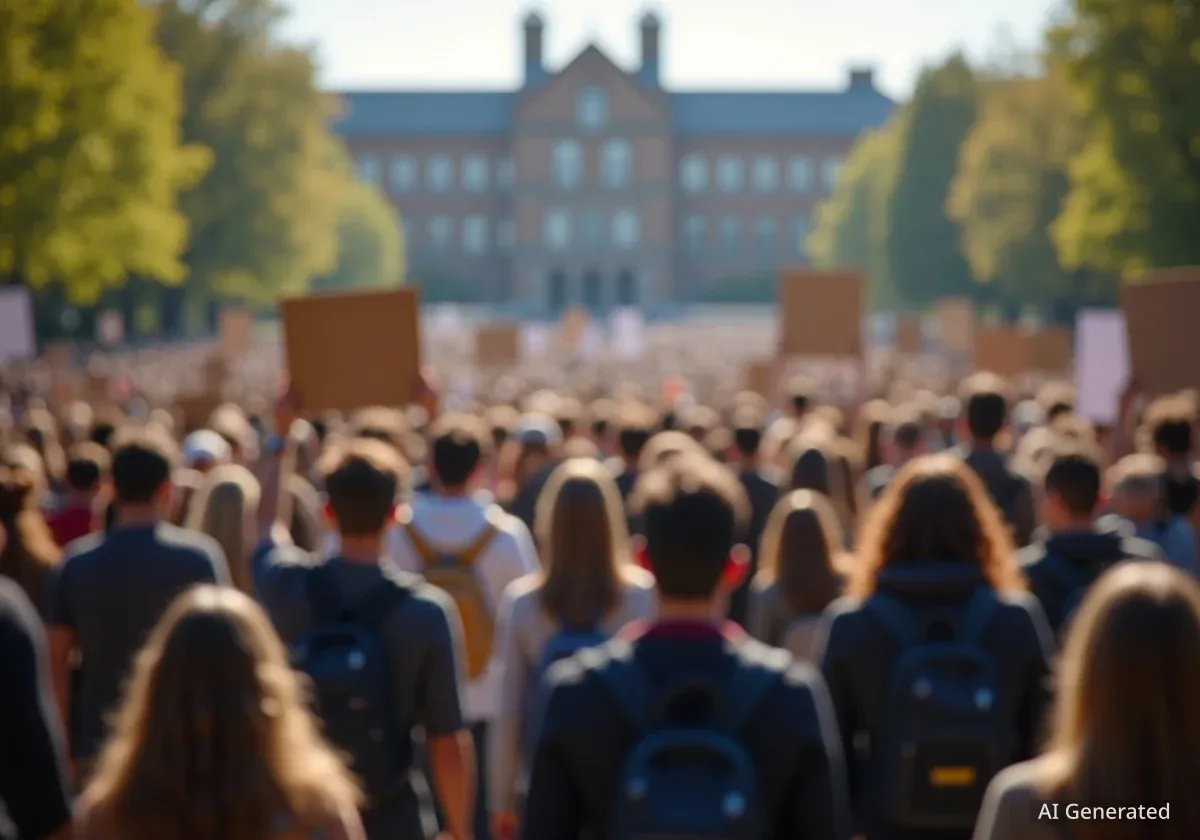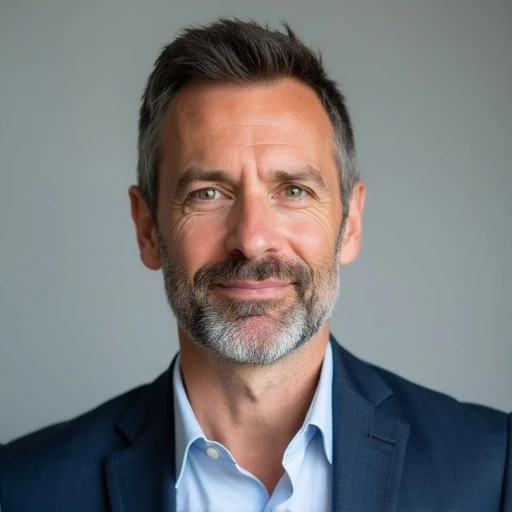The University of North Carolina at Chapel Hill has become the center of a free speech debate after placing a professor on administrative leave over alleged affiliations with an anti-fascist group. The suspension of Dr. Dwayne Dixon prompted a campus rally where students and faculty gathered to both support the professor and discuss the limits of political expression.
Key Takeaways
- Dr. Dwayne Dixon, a UNC professor, was suspended following reports linking him to a defunct anti-fascist organization.
- A campus rally on October 1, 2025, brought together supporters who defended his free speech rights and critics who condemned political violence.
- The suspension was prompted by social media posts from the conservative group Turning Point USA and a subsequent Fox News story.
- Faculty groups like the AAUP argue the university's decision violates academic freedom and was based on unverified claims.
Campus Divided Over Professor's Suspension
On Wednesday, dozens of students, faculty, and community members convened on the UNC-Chapel Hill campus near the South Building. The demonstration remained peaceful as various speakers addressed the crowd, which held signs with messages like "Reinstate Dixon" and "UNC, Stop Taking Orders From Fascists."
The rally highlighted a sharp divide on campus regarding the university's action. Supporters of Dr. Dixon, a professor in the Department of Asian and Middle Eastern Studies, argued that his suspension infringes upon fundamental First Amendment rights and academic freedom.
However, not all attendees were there in support. Representatives from student conservative groups were also present, voicing their concerns about political violence while defending the right to peaceful protest.
Student Perspectives on Free Speech
Jack D'Entremont, a UNC student and member of the campus chapters of Turning Point USA and the UNC GOP, attended the rally to offer a different viewpoint. He stated his firm belief in the right to protest and express one's beliefs through words.
"I'm 100% okay with this demonstration here because I'm a free speech advocate, and I think that even if it's not something I agree with, I think everyone has a right to fight for what they believe in," D'Entremont said. "But you fight with words, you don't fight with calls to violence or actual violence."
D'Entremont asserted that freedom of speech does not equate to freedom from consequences, referencing unconfirmed social media posts allegedly made by Dixon that called for violence. He argued that such language has no place on campus.
The Allegations Against Dr. Dixon
The controversy began after Dr. Dixon was linked to Redneck Revolt, an anti-fascist organization founded in 2016. The group, which officially disbanded in 2019, aimed to organize community defense projects. Some of its chapters formed "John Brown Gun Clubs" to train members in self-defense in states where it was legally permitted.
The issue gained national attention after Andrew Kolvet, a spokesperson for the conservative group Turning Point USA, called for Dixon's dismissal on the social media platform X. The post referenced a flyer for a "John Brown Gun Club" and connected it to Dixon.
According to the Chapel Hill chapter of the American Association of University Professors (AAUP), Fox News reported on the story on September 27, 2025, which preceded the university's decision to place Dixon on leave.
What Was Redneck Revolt?
Redneck Revolt was a national network active from 2016 to 2019. It described itself as a collection of community defense projects. While the national organization no longer exists, its name has been central to the allegations against Dr. Dixon. The group's platform included anti-racist and anti-fascist principles.
Faculty Groups Defend Academic Freedom
The UNC chapter of the AAUP released a strong statement condemning the university's actions. The faculty association claims the administration based its decision on "one unverified social media post and one Fox News story."
The statement argues that the university's response is a direct threat to academic freedom and free association. "Right-wing activists are attacking Dixon for prior membership in a group that has been inactive since 2019," the AAUP statement reads.
The AAUP criticized the university for removing a professor from his teaching duties mid-semester and banning him from campus in a way they describe as "wholly inconsistent with University policies."
Timeline of Events
- 2019: The anti-fascist group Redneck Revolt officially disbands.
- Late September 2025: Turning Point USA calls for Dr. Dixon's firing on social media.
- Sept. 27, 2025: Fox News publishes a story about the allegations.
- Sept. 29, 2025: UNC places Dr. Dixon on administrative leave.
- Oct. 1, 2025: A rally is held on the UNC campus in response to the suspension.
University Response and Broader Context
The University of North Carolina has stated that Dr. Dixon was placed on administrative leave following "reports of concern about his alleged advocacy for politically motivated violence." Officials have not provided a timeline for his return, noting that the length of the leave will depend on the time needed to assess the situation and conduct an investigation if necessary.
A member of TransparUNCy, a campus group focused on institutional governance, suggested that the university's recent handling of other campus protests has eroded trust in the administration. She argued that students have not received a complete picture of why Dixon was suspended.
She also commented on the nature of political violence, stating, "We don't live in a current state where there is no political violence... any reaction to that must be considered of the fact that violence is happening right now." This sentiment reflects a belief among some that discussions of political advocacy must acknowledge existing systemic issues.
The incident at UNC occurs amid a broader national conversation about free speech on college campuses and the influence of political organizations in academic affairs. The outcome of the university's assessment will likely be watched closely by advocates for both academic freedom and campus safety.





